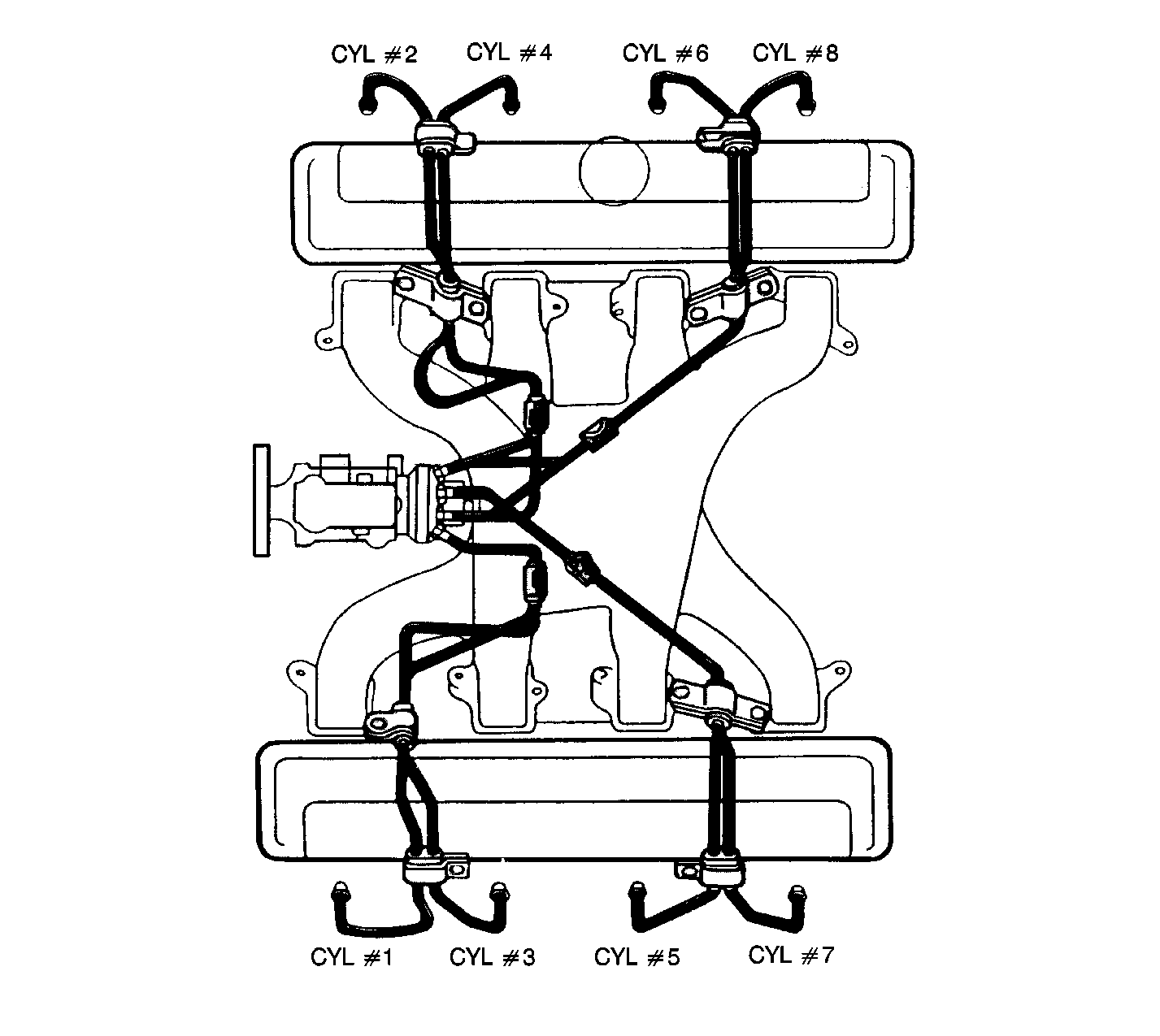
Circuit Description
The PCM times the intervals between each pulse of the crankshaft position sensor and compares each time interval with the other 8 to determine when an excessive change in crankshaft speed has occurred. This pulse is generated from a 4X reluctor wheel located on the front of the crankshaft. If the crankshaft speed is less than an expected amount, the PCM will increase the amount of fuel needed to correct the misfire. If the amount of fuel exceeds the calibrated value, the PCM will interpret this as a misfire and set the DTC. The misfire diagnostic is used only to identify a weak cylinder needing additional fuel. This diagnostic will only run once per ignition cycle.
Conditions for Setting the DTC
| • | Engine coolant temperature greater than 56°C (132°F). |
| • | Engine idling for a total of 90 seconds. |
| • | The amount of fuel added is greater than the calibrated value (internal to PCM). |
Action Taken When the DTC Sets
| • | The PCM illuminates the Malfunction Indicator Lamp (MIL) on the second consecutive drive trip the diagnostic runs and fails. |
| • | The PCM records the operating conditions at the time the diagnostic fails. The first time the diagnostic fails, the Failure Records store this information. If the diagnostic reports a failure on the second consecutive drive trip, the Freeze Frame records the operating conditions at the time of failure and updates the Failure Records. |
Conditions for Clearing the MIL/DTC
| • | The PCM will turn off the MIL after three consecutive trips with out a fault condition |
| • | A History DTC will clear after 40 consecutive warm-up if no failures are reported by this or any other emissions related diagnostic. |
| • | PCM battery voltage is interrupted. |
| • | Use of a scan tool. |
Diagnostic Aids
The most likely cause for this DTC is the following:
| • | a mechanical failure causing low cylinder compression. |
| • | a fuel leak at the high pressure fuel injection lines or injection nozzles. |
| • | a fuel injection nozzle stuck closed. |
If an injection nozzle is suspected, it can be transferred to another cylinder to determine if the DTC follows the nozzle.
After the repair has been performed, it may take approximately 30 seconds for the vehicle to return to a stable idle.
Test Description
The number(s) below refer to the step number(s) on the Diagnostic Table.
-
This step will help identify a suspected cylinder.
-
This step will identify an area with the mostly likely cause of failure.
Step | Action | Value(s) | Yes | No | ||||
|---|---|---|---|---|---|---|---|---|
1 |
Important: Before clearing any DTCs, use the Scan Tool Capture Info to save freeze frame and failure records for reference, as the Scan Tool loses data when using the Clear Info function. Was the Powertrain On-Board Diagnostic (OBD) System Check performed? | -- | ||||||
Is there an RPM drop in the suspected cylinder? | -- | |||||||
3 | The DTC is intermittent. If no additional DTCs are stored, refer to diagnostic aids. If any additional DTCs were stored, refer to the applicable DTC table(s) first. Are there any DTCs stored? | -- | Go to the Applicable DTC Table | Go to Diagnostic Aids | ||||
Check for basic engine mechanical or fuel delivery problems in that cylinder.
Was a repair performed? | -- | |||||||
5 | Replace the fuel injection pump. Refer to Fuel Injection Pump Replacement . Is action complete? | -- | -- | |||||
6 |
Does the Scan Tool indicate the diagnostic Passed? | -- | ||||||
7 | Does the Scan Tool display any additional undiagnosed DTCs? | -- | Go to the Applicable DTC Table | System OK |
